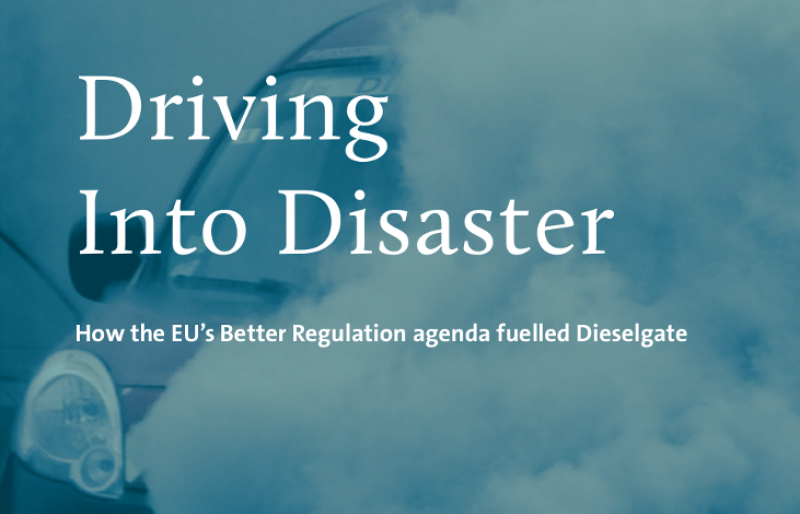
European Commission complicit in Dieselgate scandal, say NGOs
‘Dieselgate’ was the result of corporate-driven deregulation, with both member states and European institutions complicit in turning a blind eye to industry-wide abuse, according to a report released today by Corporate Europe Observatory and Friends of the Earth Europe.
As the European Parliament’s inquiry committee on the Volkswagen emissions scandal wraps up with a final vote next week, “Driving into Disaster” reveals how the European Commission’s ‘Better Regulation’ agenda implicates the institution in an affair that has by now engulfed many leading manufacturers in the European automotive industry.
Corporate Europe Observatory’s transparency campaigner Pascoe Sabido said:
“Car manufacturers have steered emissions regulation for over a decade. And it is the Commission’s Better Regulation agenda that put them in the driving seat. When the priority is to keep costs down for business, it is no wonder that tens of thousands of people die prematurely from toxic diesel fumes each year.
“It is the human cost that matters to citizens across Europe, not corporate profits. But Better Regulation only gives corporations more power. The Commission can no longer allow industry to make its own rules.”
The study highlights how both the European Commission and Member States turned a blind-eye to industry-wide abuse of the system for emission regulation, and as part of the ‘Better Regulation’ agenda even invited the car industry to shape regulation as well as its enforcement.
Myriam Douo, transparency campaigner for Friends of the Earth Europe added:
“The Volkswagen scandal has lifted the lid on a culture of industry self-regulation and light-touch rule-making that is strongly linked to the Better Regulation agenda.
“Prioritising cost reduction for business over health and environment, biased impact assessments, largely relying on the car industry and weakening rules were all based on recommendations from the Better Regulation textbook.”
The car industry has used the rhetoric and objectives of ‘Better Regulation’ to its own advantage, according to the organisations, pushing market-driven solutions, promoting industry-friendly impact assessments and arguing for voluntary agreements instead of binding regulation.
Notes to editors:
Read “Driving into Disaster” in full.
The report by Corporate Europe Observatory and Friends of the Earth Europe exemplifies how a key Commission advisory group on the regulation of the automotive industry was for years dominated by representatives of the car industry, and managed to delay and weaken EU emission rules long-term.
Pending recommendations by the Commission’s High Level Group on the competitiveness and sustainable growth of the automotive industry in the EU (CARS 21) recommended, for example, replacing EU-specific emission testing methods with weaker global standards, introducing self-testing instead of fully independent assessments, and implementing lead-in times that would delay any new rules coming into force.
Contact details:
Pascoe Sabido, Corporate Europe Observatory, pascoe@corporateeurope.org, +32 289 309 3001
Myriam Douo, Friends of the Earth Europe,myriam.douo@foeeurope.org, +32 485 70 75 19
